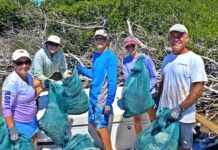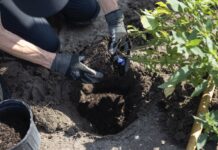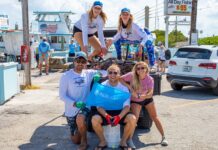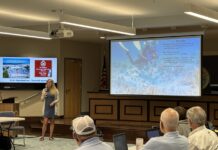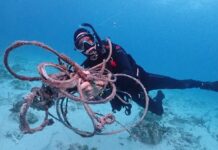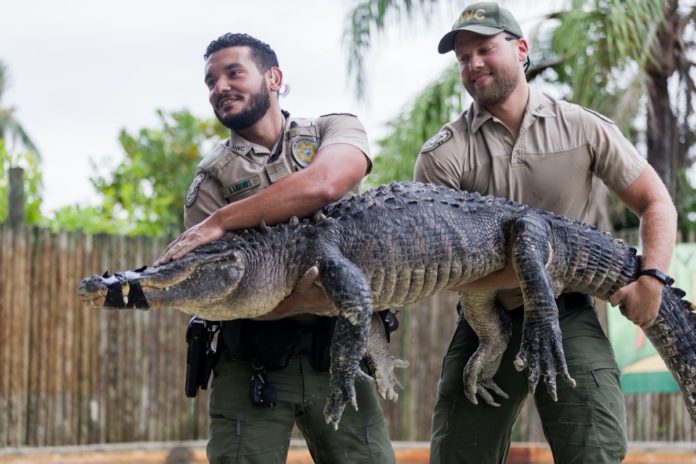
By: Maritza Thibos and Tiffany Duong
Last week, Florida Fish and Wildlife Conservation Commission (FWC) officers attended an all-in, hands-on training at Everglades Alligator Farm on how to properly and safely handle alligators.
According to FWC, there are an estimated 1.3 million alligators in Florida today. While alligators have been found throughout Florida’s marshes, swamps, rivers and lakes for centuries, in more recent years, as development has overtaken their natural habitats, alligator-human interactions have increased. It is not uncommon to find an alligator in a residential pool or garage.
While longtime residents have learned to coexist, sometimes alligators get large enough to pose a risk, and FWC officers are called upon to mitigate removal. FWC is also occasionally called upon to capture crocodiles that wander into inhabited areas or when no one else is available to respond.
In order to ensure the safety of all involved, the Everglades Alligator Farm training covered how to handle alligators properly and safely.
“These trainings are a great way for us to be able to give back to the community, and help prepare our local FWC officers,” said Everglades Alligator Farm CEO Matthew Thibos. “We take priority in safety for both the animals and humans involved in any interaction, and respect is key.”
Everglades Alligator Farm is South Florida’s oldest alligator farm in the area. As such, they are no strangers to training and have conducted similar safety courses for zookeepers on the west coast and FWC locally. This training was a special event that the farm and FWC collaborated on.
Alligator farm handlers led the training. Their techniques come as second nature after years of daily interaction with alligators. Capturing methods actually originate from Seminole tribes who captured alligators for food but needed to bring them back alive so that the meat wouldn’t spoil. The Everglades Alligator Farm does not process its alligators for meat or leathers.
The training began with the basics in handling and capturing small alligators under 4 feet in length and then releasing them. This size of alligator hardly poses a risk, but some do need to be relocated at times, Thibos said.
“These smaller gators look harmless and cute but their teeth are very sharp and they can be feisty; always, always, watch those fingers near their head when taping their mouth,” handler Liz Sokol said.
The real challenge came in training with the larger, far more dangerous 6- to 10-foot gators that weigh over 120 pounds. These animals are more likely to be the source of complaints at FWC dispatch and require FWC officers’ help.
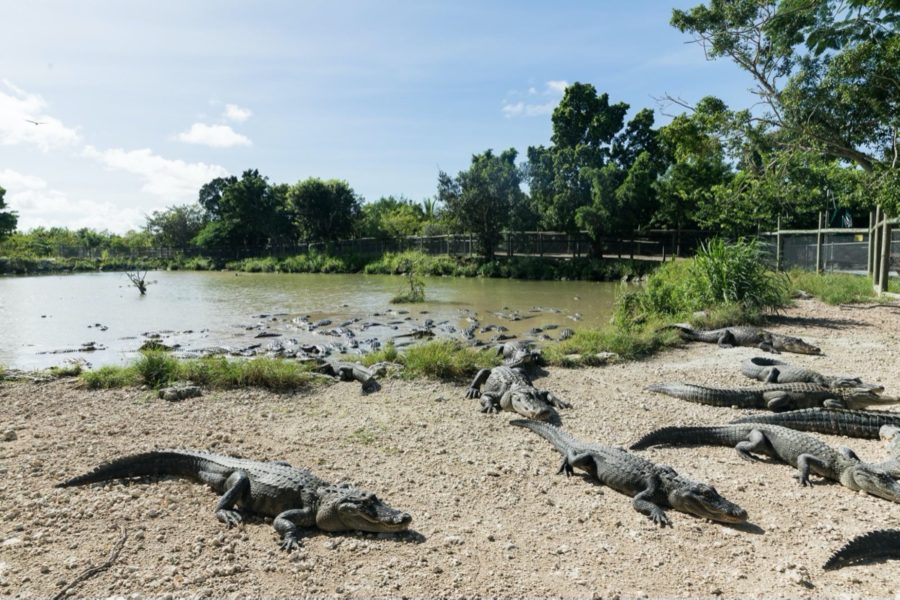
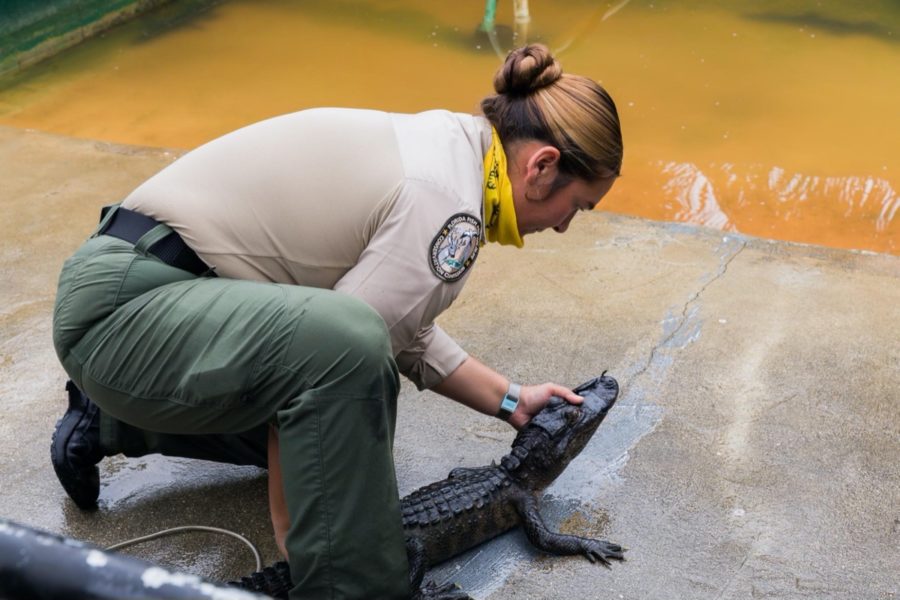
The capstone of the training was learning how to anticipate an alligator’s sudden movement and their range of peripheral view. Alligators’ eyes are placed to the sides of their head, so the best way to approach them is from behind where they cannot see, explained the handlers.
“If their jaws happen to catch your flesh, you must at all cost, avoid any movement,” Sokol said. “The slightest movement will turn a bite into a tear, and, with an alligator bite, the ER will not close it up for you.”
Alligator bites are typically treated by surgical debridement to reduce the risk of a bacterial infection.
The remainder of the training focused on how to capture and release an alligator safely, something the officers have to do routinely when they are called to assist with an alligator. Each officer worked through the exercises of trapping, taping the mouth, lifting and releasing a 6-foot alligator. The officers worked as teams and learned that clear communication is key to a successful and safe capture.
FWC dispatch officers had the chance to complete the training alongside law enforcement officers. This helps them understand what their team members on the field must accomplish so that if and when the occasion arises, all members of the team can communicate effectively and keep the public, officers and the alligator safe.
“We don’t get a chance to work with alligators daily, so this training is critical for our field experience,” said Officer Michael McKay.
If you encounter a wild alligator near you, do not approach or feed it; it is illegal and dangerous. Call FWC’s nuisance alligator hotline at 866-FWC-GATOR. For more information about Everglades Alligator Farm or to book a tour, visit https://everglades.com/ or call 305-247-2628.


















